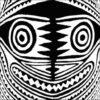New Guinea Adornment
There is a huge variety of New Guinea Adornments from the mainland and surrounding islands. Adornments were originally made using neolithic tools like sharks teeth and obsidian. The materials were those found in nature such as shells, teeth, bone, bush fiber, feathers, stone, wood and turtle shell. As soon as Pacific Cultures came in contact with Europeans they started to incorporate glass trade beads. Later they incorporated all sorts of other European materials.
The aim of the article is to look at some of the vast variety of New Guinea Adornment. Lots of images to help the reader identify specific pieces of Ethnic Jewellery. Hopefully, you develop an appreciation for these miniature masterpieces.
I Buy and Sell New Guinea Adornment and if you have a piece you would like to sell please send me an image. If you have a piece of Ethnic jewellery and just want to know more about it or find out what it is worth feel free to send me an email.
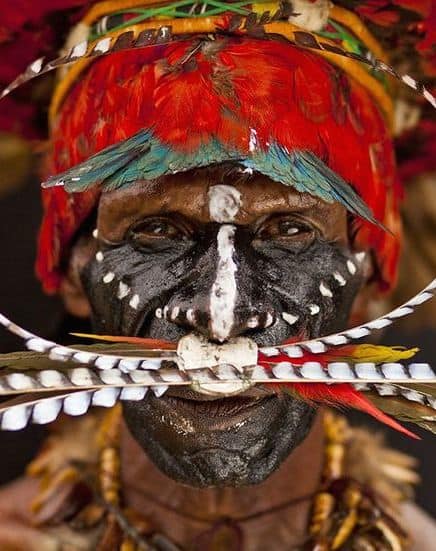
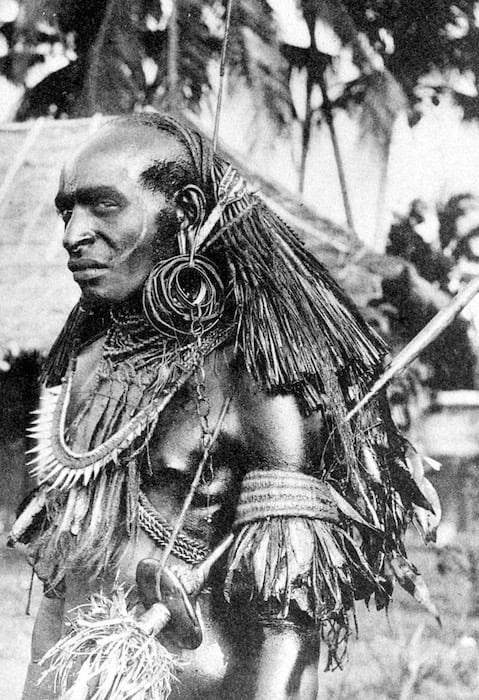
New Guinea adornments general
With experience, it is possible to identify pieces of New Guinea Adornment and know exactly where it comes from. Many pieces of New Guinea Adornment could only be worn by people of a certain social rank or status. They often signified to others not only your wealth but your position within society.
The value of a New Guinea Adornment depends on several factors. Physically attractive pieces are of course more valuable than plain pieces. Rare pieces are more valuable than common pieces.
The condition is extremely important because restoration is often nearly impossible. Island Jewellery tends to be more valuable than mainland New Guinea material.
As it would take a very thick book to cover all the New Guinea Adornments the following images are just some examples.
Great books on New Guinea adornments is Pacific Jewellery and adornment
Examples of New Guinea Adornments
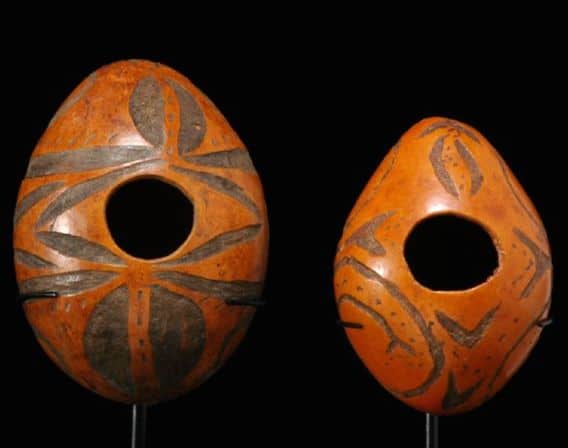
Sepik River Phallocrypt or penis gourds
Gourds carved and colored by burning
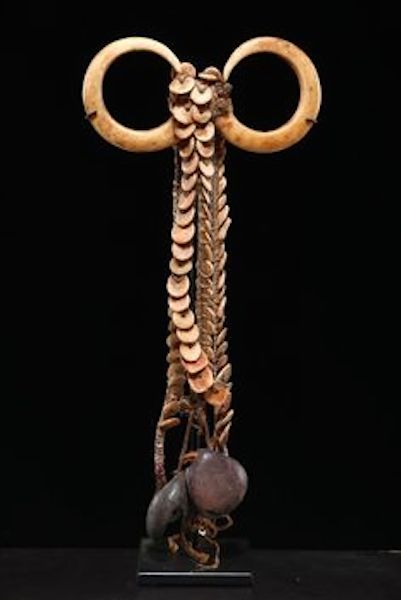
Collingwood Bay Mouth Adornment.
Made with circular pig teeth, nut rattles, and shell segments.
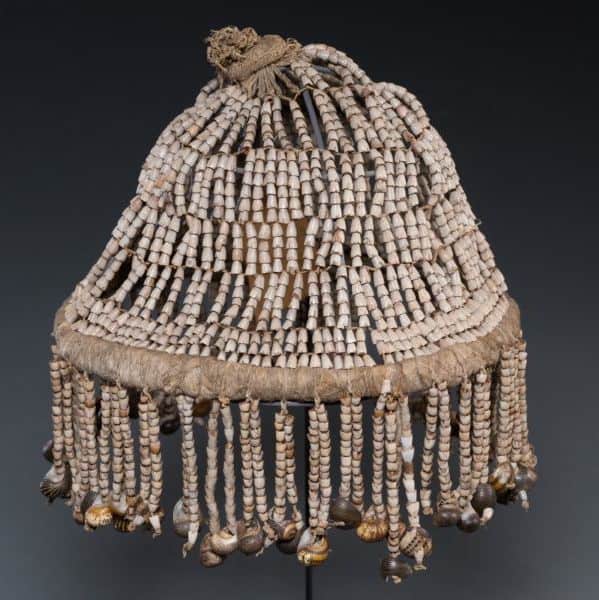
Collingwood Bay Hat
Made of Job tears seeds bush fiber and shells
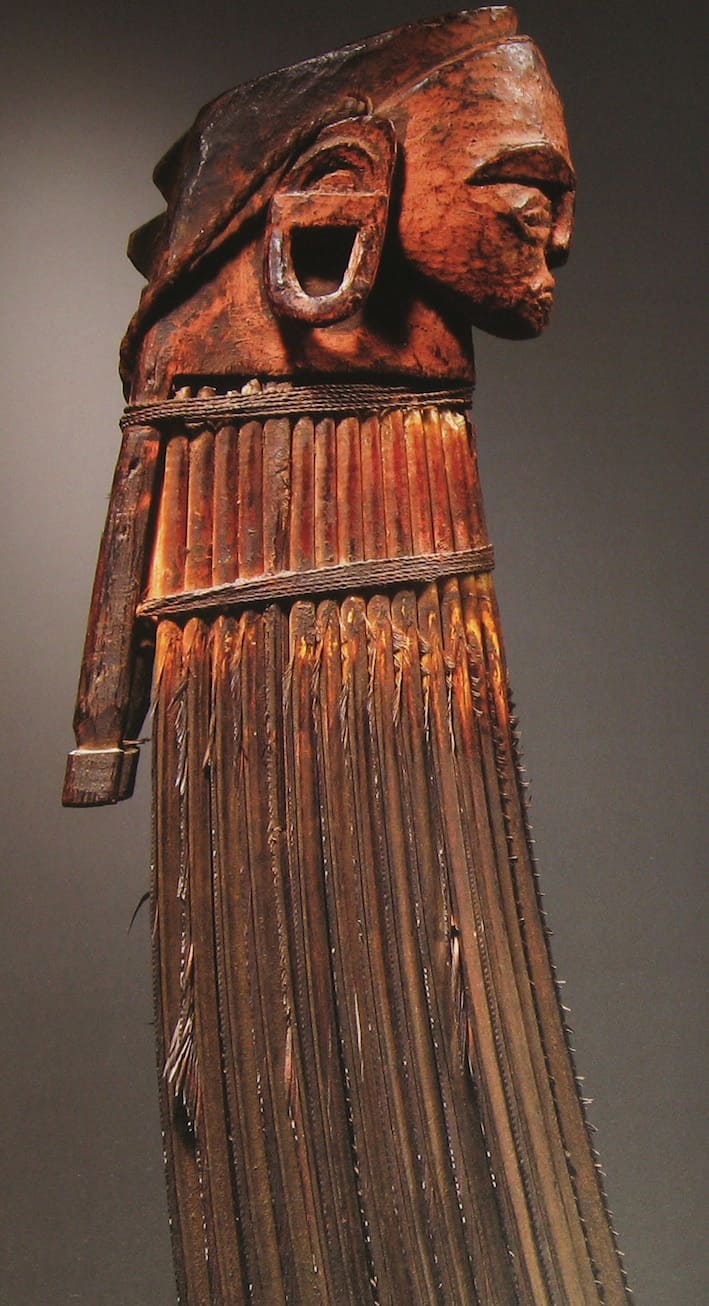
Admiralty Island War charm
Made from carved wood and Frigatebird feathers
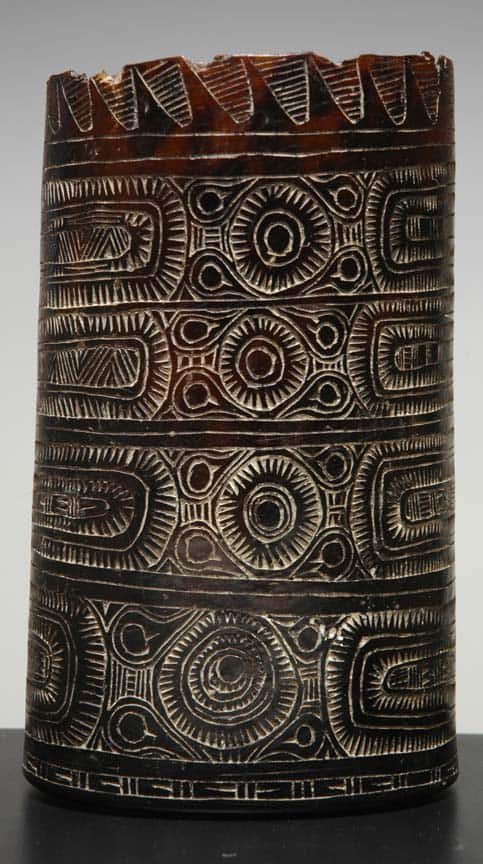
West New Britain Armband
Made of Incised Turtle shell colored with lime.
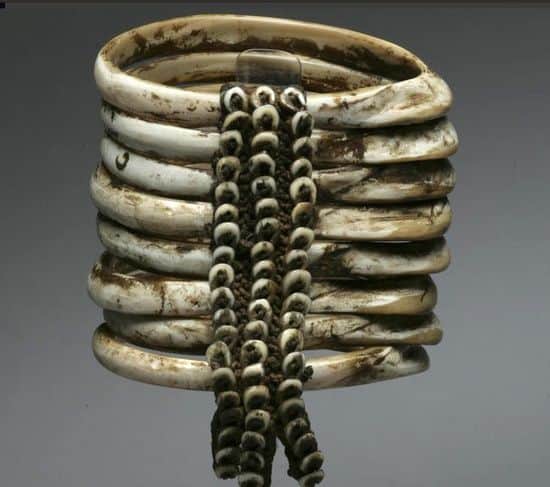
Siassi island Armband
Made of Conus shell segments, bush fiber and nassa shells
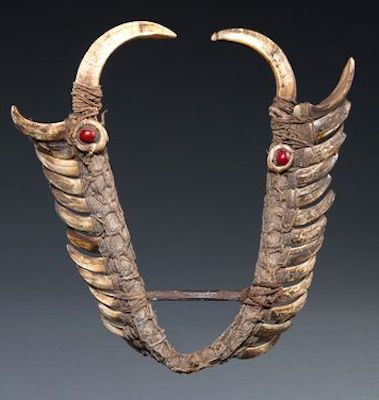
Collingwood Bay Mouth adornment.
made of Pig teeth Cane Conus shell and fiber.
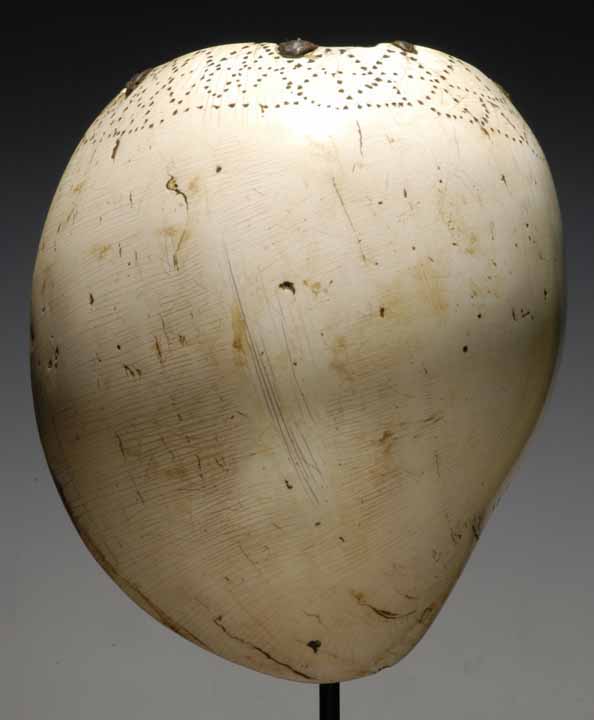
New guinea Highlands bailer shell pectoral
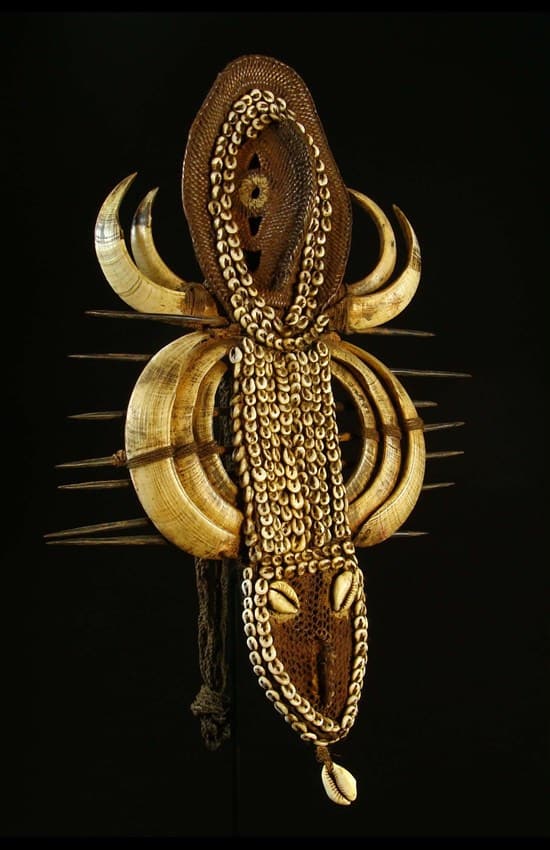
Abelam Karahut Mouth adornment
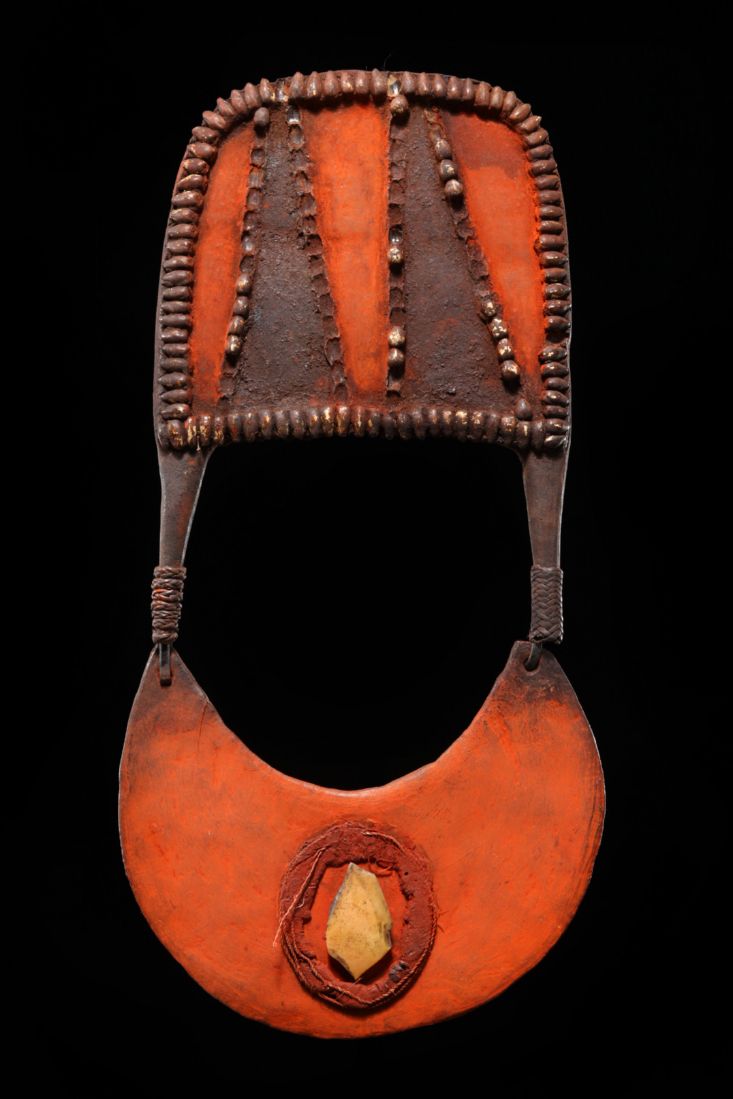
Moka kina wealth adornment
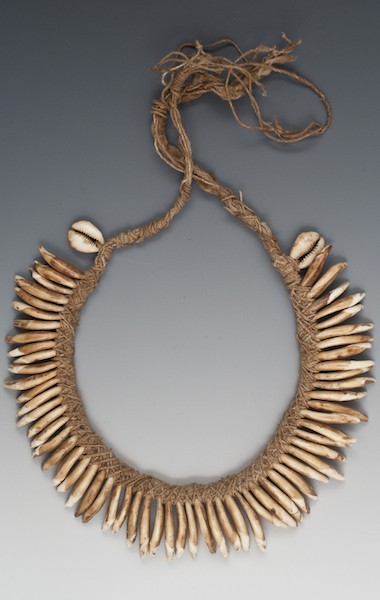
Necklace from the lower Sepik. Made from dogteeth shell and bush fiber.
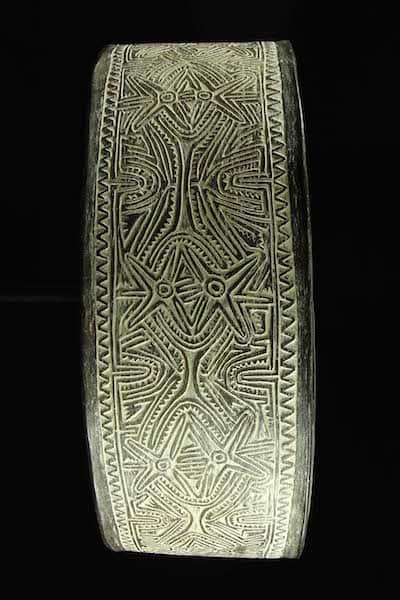
Papuan Gulf bark belt
Incised and colored with lime
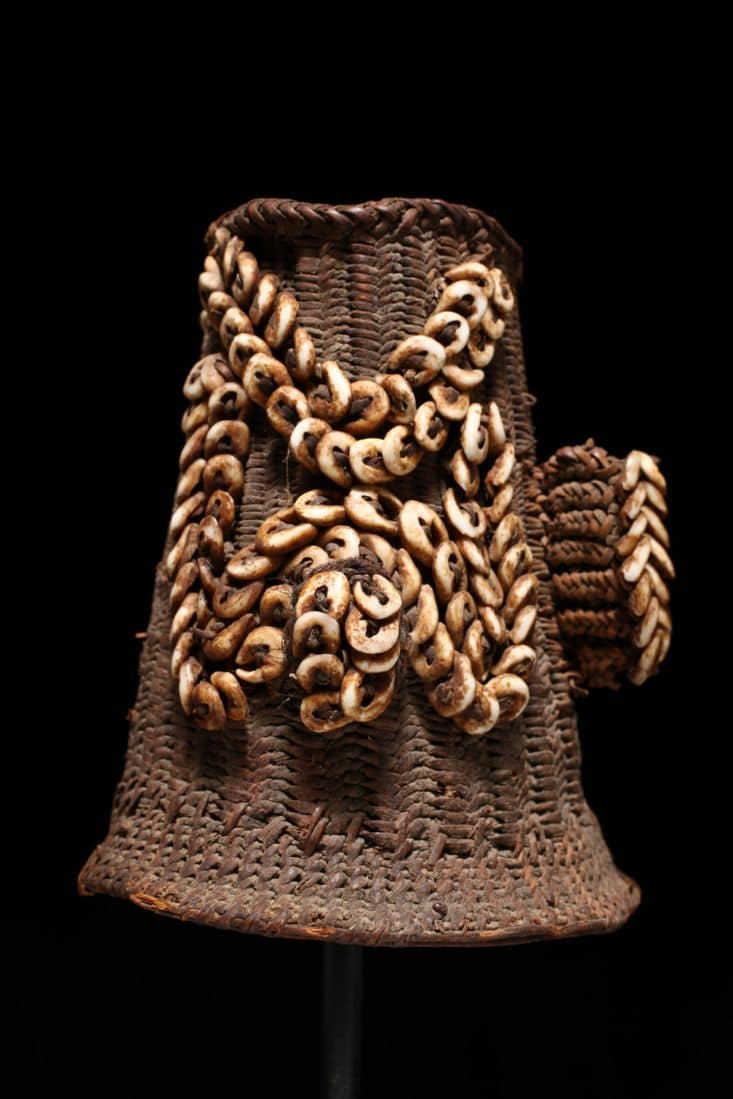
Hair Coiffure form Murik Lakes
Made from woven cane nassa shells and dogs teeth.
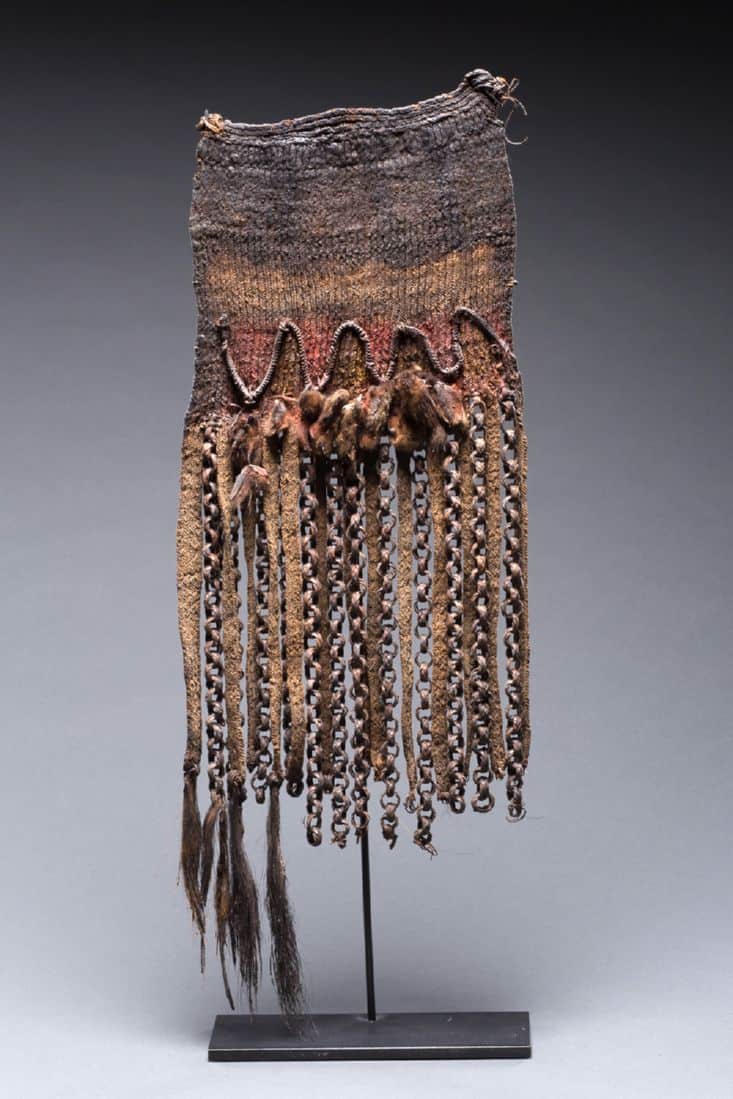
New guinea Highlands Pig Killing Apron
Made of bush fiber and pig tails
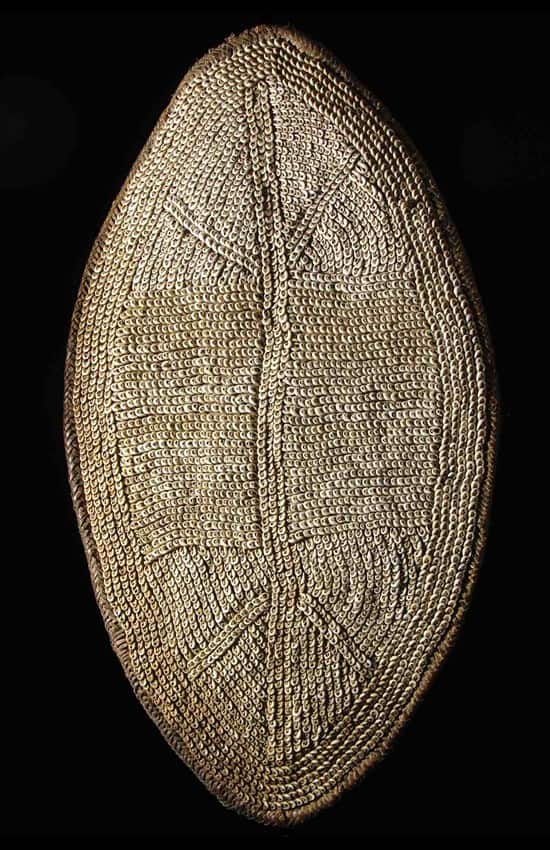
Shell breastplate from Lumi Sepik region
Made of nassa shells on a woven fibre backing.
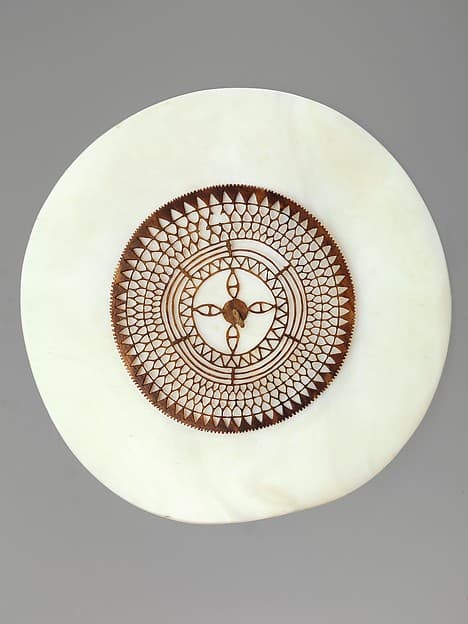
Kapkap adornment from New Ireland
Made of turtle shell filigree over a clamshell base.
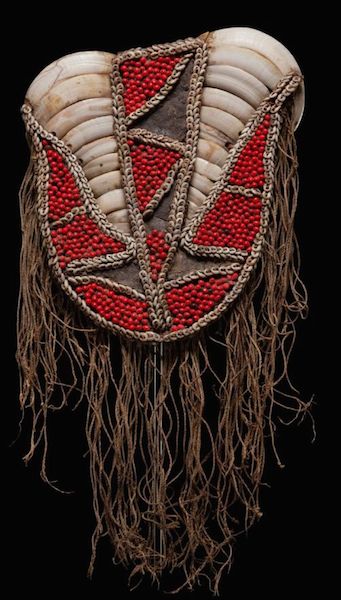
Pectoral Adornment from Aitape
Made of Pig teeth red seeds and nassa shells.
Image: Michael Hamson Oceanic Art.
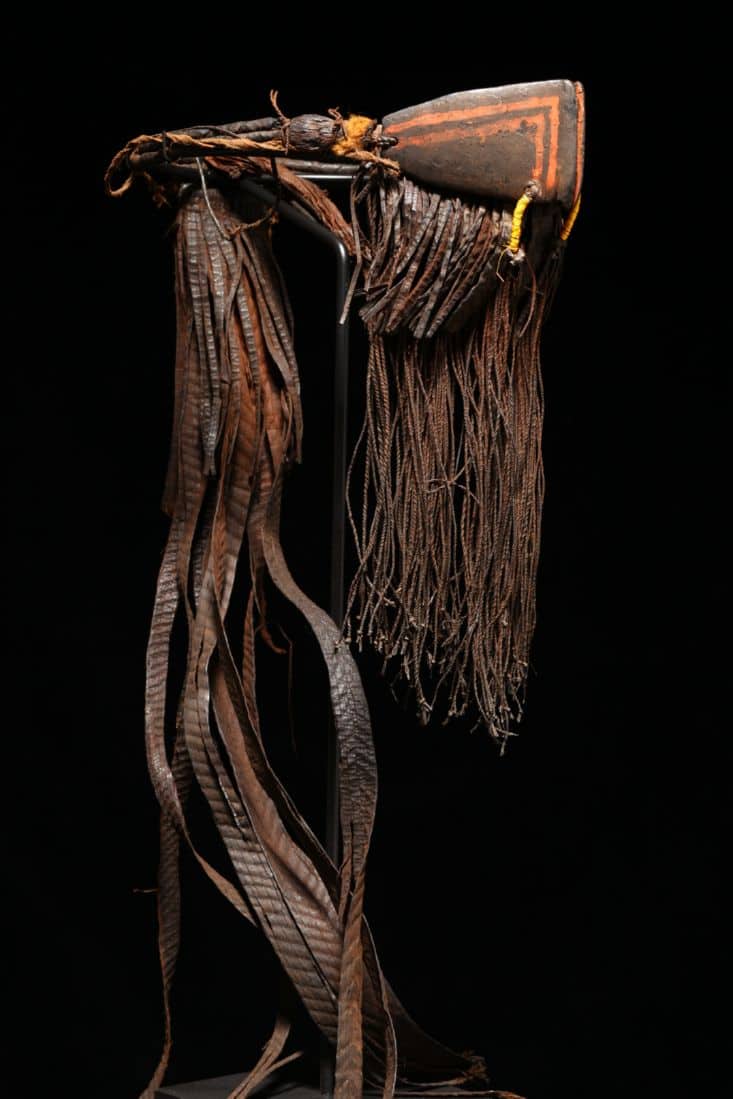
Hunger suppression belt PNG Highlands
Image: Michael Hamson Oceanic Art.
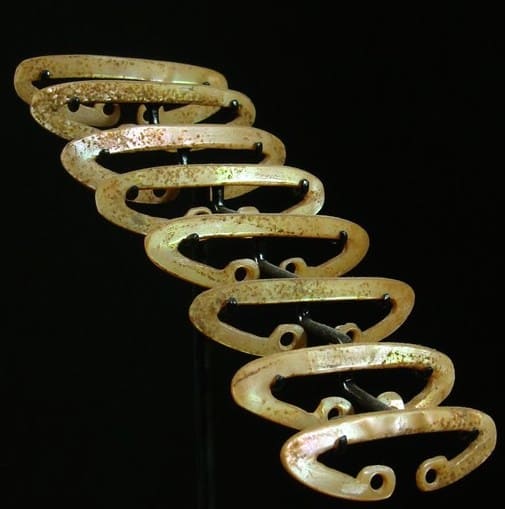
Lower Ramu nose pieces
Made from sections of pearl shell
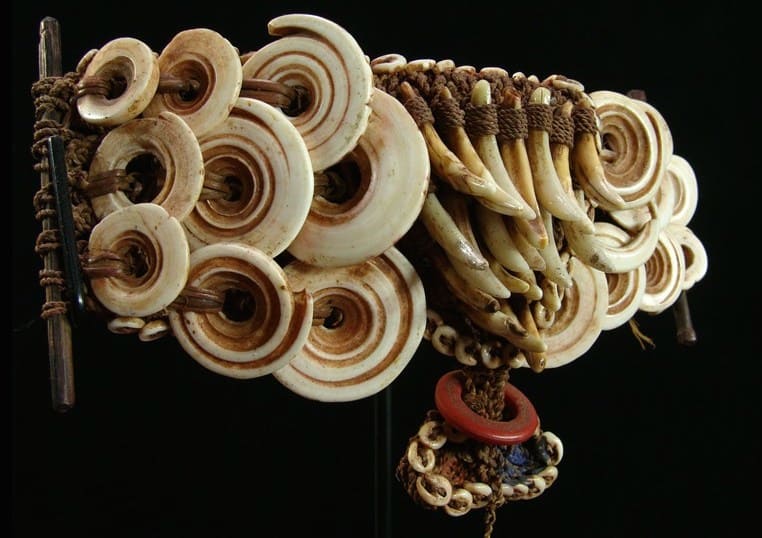
Lower Sepik Armband
Made from conus shell segments dogteeth and fiber
New Guinea Adornment
Due to the sheer volume of material I have other articles that cover this subject. They include Traditional Papua New Guinea Jewelry, Pacific island jewelry
If you cant find the piece you want to be identified feel free to contact me. Chances are I will be able to help.
All images in this article are for educational purposes only.
This site may contain copyrighted material the use of which was not specified by the copyright owner.
